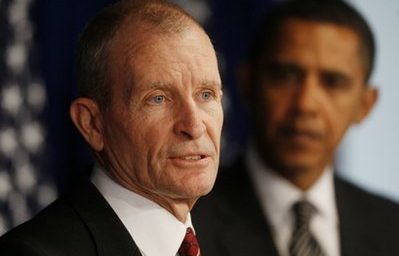Reporter: Lying Readers Actually Trust the Press
Jack Shafer, Slate‘s editor at large, doesn’t trust readers who say they don’t trust the press.
Why I Don’t Trust Readers – I’m sad to report that their credibility has fallen to an all-time low
Oh, not you, dear Slate reader! The readers I distrust are the ones who, in survey after survey, tell pollsters how much they don’t trust the press.
My distrust is instinctual, but thanks to a June 8, 2004, survey study by the Pew Research Center for the People and the Press, I now have empirical evidence for why readers can’t be relied on: They’re two-faced, untrustworthy, duplicitous bastards. Over the last two decades, the Pew people have plotted a steady decline in the credibility of newspapers among its survey respondents. In 1985, 84 percent said they could believe most of what they read in their daily newspaper, but by 2004 that number was down to 54 percent.
These findings are enough to sicken the heart of any journalist—until he reads the rest of the survey. Over nearly the same interval, survey respondents gave consistently favorable marks to their own daily newspaper! In 1984, 88 percent of those familiar enough with a daily newspaper to give it a rating gave it a favorable grade. In 2005, 80 percent still did. Newspapers weren’t the only news organizations to earn the “I don’t believe it but I like it” rating from the public from Pew. The survey uncovered a similar pattern among viewers of both network news and local TV news: a sharp decline in believability but only a moderate one in favorability.
The average American’s dislike for the institution of journalism but satisfaction with its product has a political analogue. Most Americans hate Congress and Washington because they hate paying the taxes that give government money to spend on entitlements and pork-barrel legislation. But they love their individual members of Congress because they work hard to steer entitlements and pork to the district or state.
I locate the origin of hatred for the press and Washington in the mid-1960s. After George Wallace showed how a candidate could mobilize voters by running against Washington, Richard Nixon and every other successful Republican candidate for president exploited this meme. Once Nixon and his vice president, Spiro Agnew, reached the White House, they added a wrinkle to the Wallace formula when they discovered that vilifying the press as incorrigibly left-wing, elitist, and unpatriotic was always good for a few votes. As the Republicans established themselves as the dominant party, running against Washington started to return less on the investment, but running against the press still fires up the faithful. The GOP’s “don’t trust the press (except Fox News)” mantra is readily digested and regurgitated by the party faithful, and commentators such as Rush Limbaugh are always happy to give it a daily boost.
The bloggers, politicians, and op-ed dimwits who disparage the press often attribute the decline of press credibility to journalistic frauds committed by such miscreants as former New York Times reporter Jayson Blair, who fabricated and plagiarized for months and months at his paper without getting caught, or other fabulists such as former USA Today reporter Jack Kelley, former Associated Press reporter Christopher Newton, and former New Republic writer Stephen Glass. But a 2005 Annenberg Public Policy Center survey reveals that the majority of the public can’t possibly hold the Blair affair against journalism for the simple reason that his perfidy—the most widely publicized of all journalistic scandals in the last decade—is largely unknown to them. According to the survey, only 31 percent of respondents were familiar with the Blair episode.
Shafer is at least partly correct. People are more likely to trust their hometown papers than they are the elite papers that they don’t actually read. Ditto, the things they hate about congressmen–their tendency to compromise, engage in pork barrel politics, and so forth–are precisely the things they like about their own congressman.
In today’s age of narrowcasting, this contrast is even more stark. People believe the generic “media” are biased and untrustworthy but believe their media are fine. So, Blue America trusts NPR, the New York Times, and PBS while Red America trusts Fox, the Wall Street Journal, and (I’m sure there’s a third. Editor?). Having people burrow down into their own private media holes is not necessarily the best state of affairs, as it may lead to more pandering and a less credible media that, ironically, is perceived as more credible by its own niche.





I’m sure there’s a third. Editor?
OTB?